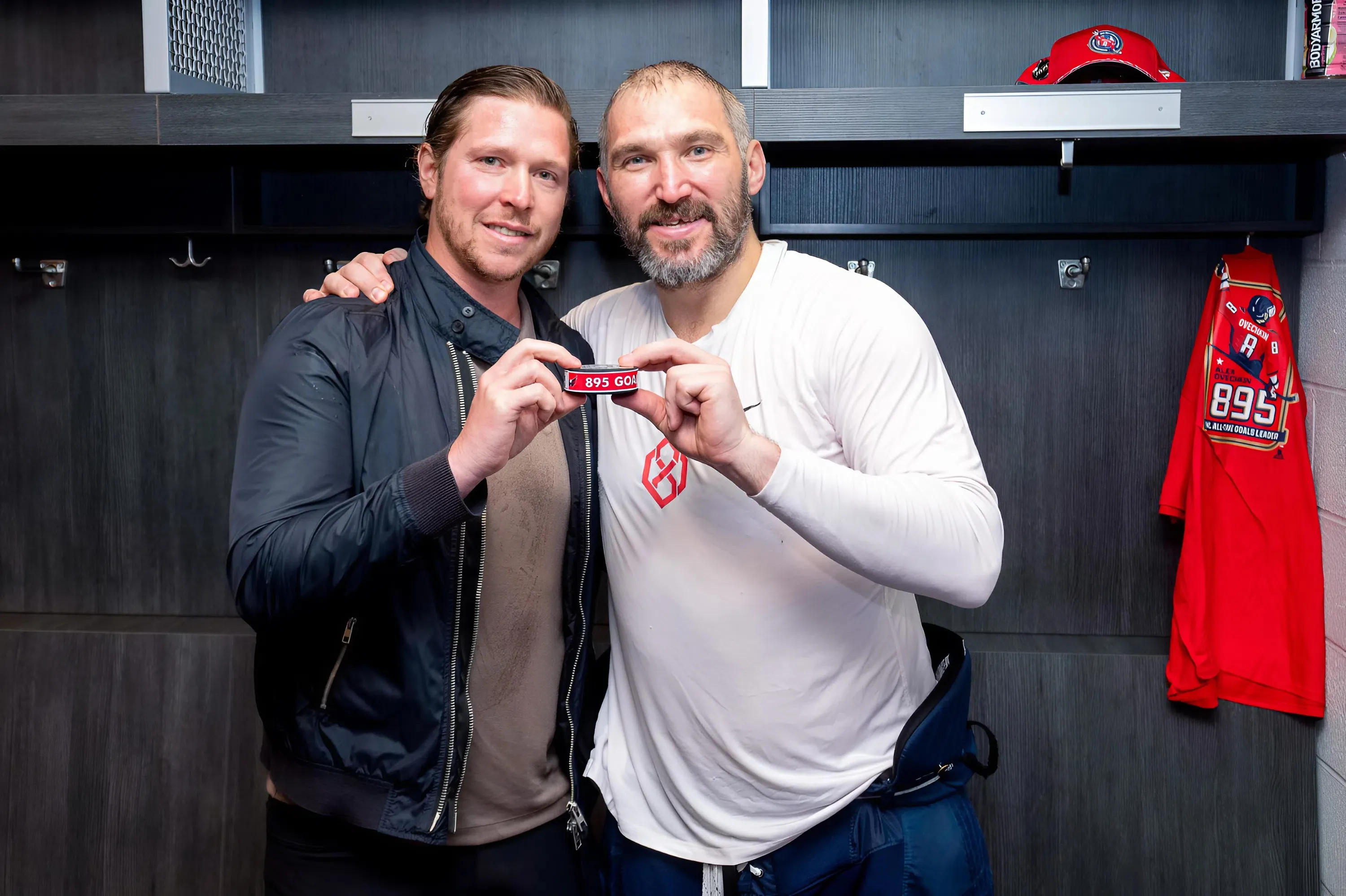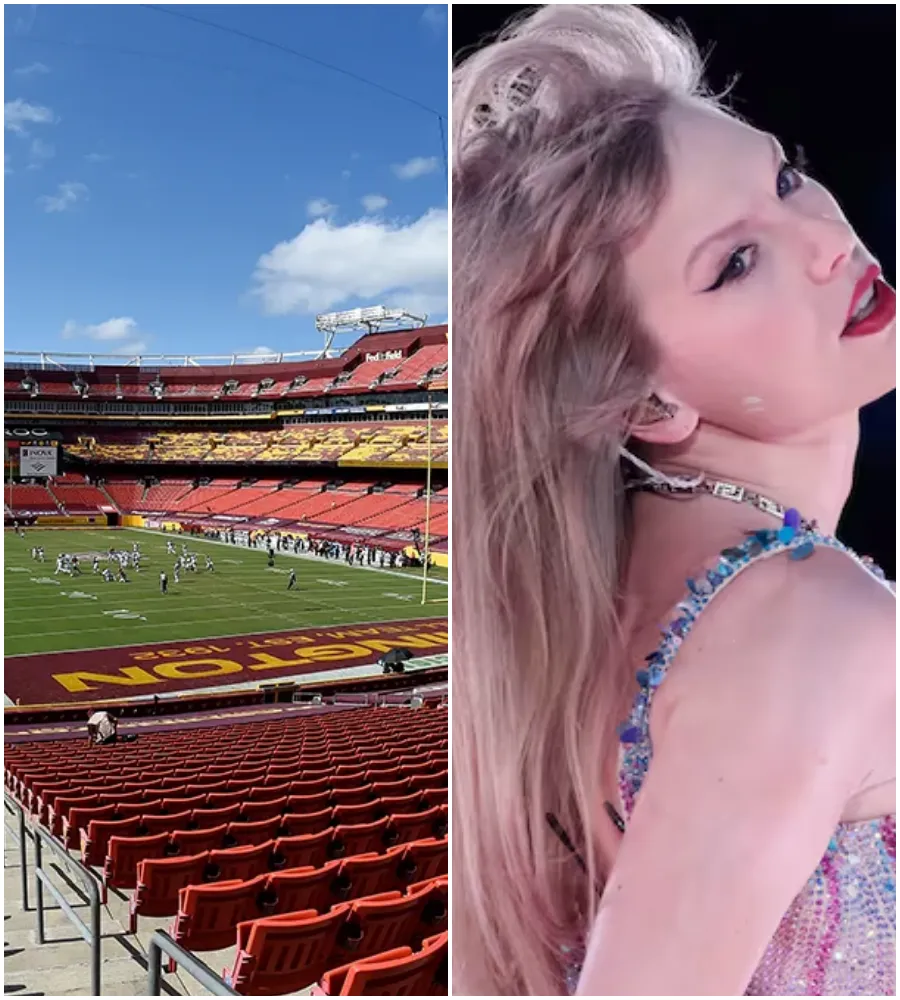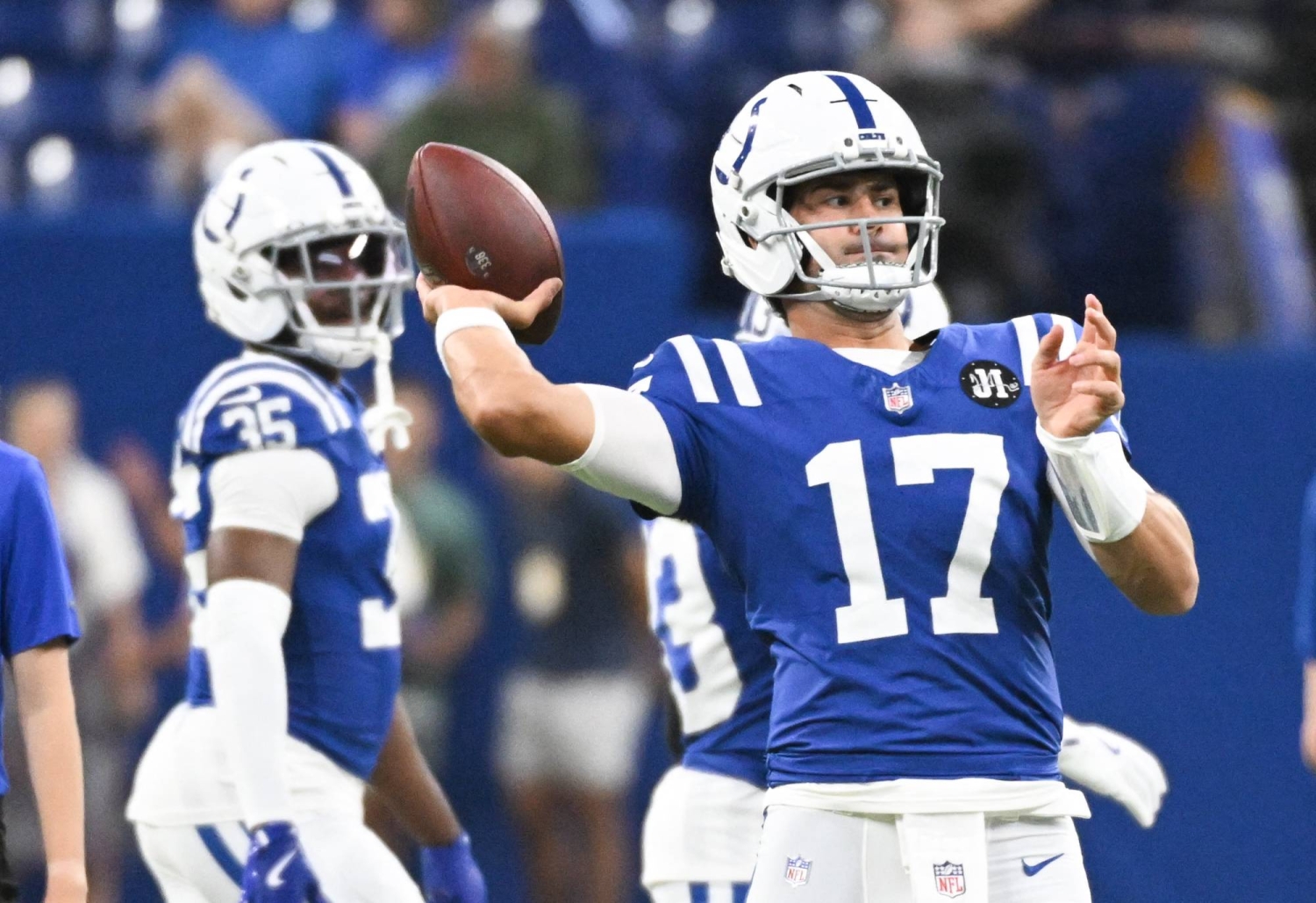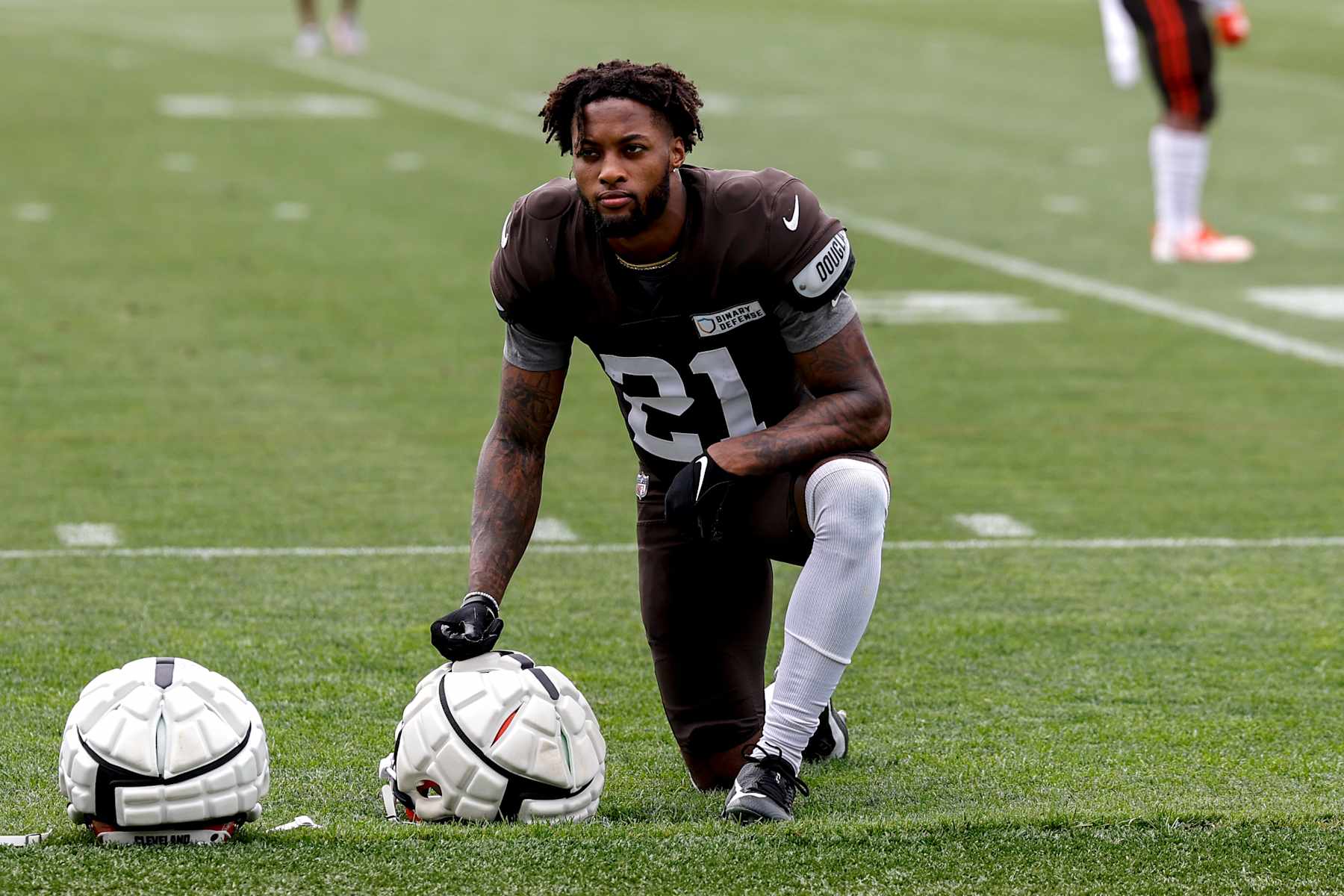TJ Oshie says Alex Ovechkin was walking the day after fracturing his fibula: ‘He’s like, ‘I’m fine, babe.”
Alex Ovechkin has remained remarkably resilient over his 20-year NHL career, proving last season that not even a broken leg could slow him down for long.

After fracturing his fibula on November 18, Ovechkin was out for less than six weeks, missing just 16 games before returning to action on December 28. TJ Oshie got a front-row seat to Ovechkin’s speedy bounce back in the days after the injury, telling the “NHL Unscripted with Virk and Demers” podcast that he was up on his feet shortly after the collision.
“I saw him the next morning,” he said. “I walked in and I’m sitting there doing my crossword. I don’t have anything to do…I look over and he’s walking in. And he broke his leg like the day before. I’m like, ‘O, what are you doing?’ He’s like, ‘I’m fine, babe. Fine.’ He had crutches, but he set them down and then walked around the table to get up.”
Oshie’s incredulity at Ovechkin’s optimistic prognosis only grew when he learned more about the fracture. He’d had plenty of experience with injuries himself — ultimately missing the entire 2024-25 season with chronic back issues before retiring in June — and he struggled to believe that anyone, even Ovechkin, could manage such a quick comeback.
“He sits down, I go look and I’m like, ‘Let me see the x-rays,’” Oshie said. “I looked at them. I mean, it’s broke. His leg was broken. It wasn’t like a small sliver, a little crack. It was broken — his bone was in half.
“And I was like, ‘Oh, man.’ I had a spiral fracture, and I got a plate and screws down above my ankle. And I was like, ‘Damn, O. That sucks, man. It’s going to be a couple of months until you can skate again.’ He’s like, ‘No, babe, I’ll be on the ice in two weeks.’ And I was like, ‘O, there’s no chance.’ He’s like, ‘Watch, I’ll be on the ice in two weeks.’”
But true to his word, Ovechkin was back on the ice only two weeks after the injury, much to the shock of his teammates.
“Literally it was two weeks later from that day, I’m at home and he sends a video to my phone…and it’s him on the ice,” Oshie said. “Not skating, but on the ice, moving around with the skates on. I’m like, ‘Dude, you’re insane.’”
Ovechkin was playing again before New Year’s and wasted little time getting back to scoring, passing Wayne Gretzky for the all-time goals record in April. He ended the year with 73 points (44g, 29a) in 65 games, ranking third in the league in goals for the season.
Ovechkin’s *ahem* machine-like endurance has become one of his signature features, but Oshie noted that that he wasn’t any less injury-prone than any other player. Instead, Oshie cited his pain tolerance and ability to play through injury as the source of his resilience.
“He’s different. I swear his bones are different,” Oshie said. “I don’t know how to explain it. Everyone talks about how healthy he is– he’s not that healthy. As far as his body, he’s hurt a lot. Never doesn’t play.
“He has this insane pain tolerance. You see him getting hit in the bench with a puck in the face, and then he just licks his like cheek and goes back to watching. Getting hit with a puck in the face, most people drop to the floor. And he was like, ‘Oh, something nicked me.’ It’s like, ‘Yeah, you got hit in the f%&# face.’”
Ovechkin is set to reach another marker of his longevity when he returns for his 21st NHL season this fall, with just nine games remaining before he hits 1,500 career games.





